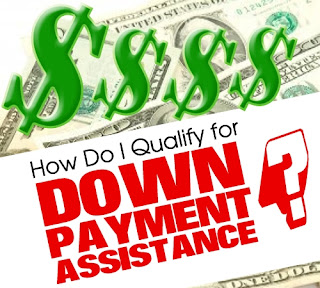HOPE BRINGS YOU HOME - Updated for 2020
Hope Brings You Home is a new down payment assistance (DPA) program available to most of Southern Nevada that focuses on areas still considered distressed from the housing crisis. The first come first serves program will provide funds until the $17.9 million of funds is depleted. Nevada Affordable Housing Assistance Corp. (NAHAC) administer of the Nevada Hardest Hit Funds has partnered with Nevada Housing Division (NHD) to administer the Hope Brings You Home program and make the funds available to Nevadans.
HIGHLIGHTS:
•DPA equal to 10% of the purchase price up to
$20,000 for down payment and/or closing costs
•Maximum
purchase price $400,000 (remember to check Agency limits)
•FHA/VA
Income Limit:
$98,500
and CONV Income Limit $54,240 Clark County
For
the purpose of this program, a borrower (s) gross income must be used in
determining eligibility. Gross income includes annual wages, commissions,
bonuses, self-employment net income (plus depreciation) dividends, interest,
annuities, pensions, child support alimony and public assistance.
•Minimum
credit score FHA
660 – VA/CONV 640
•Maximum
debt ratio 45%
•Non-Purchasing
Spouse is NOT permitted
under this program. Married individuals must apply jointly.
•Co-signers
and Non-Occupant Co-borrowers are NOT permitted under this program.
•Borrower(s)
cannot own other real property at the time of close.
•Eligible
Properties: Existing single-family properties including townhomes and condos.
Manufactured homes and new construction are NOT eligible
•Homebuyer
Education is required
•DPA
is in the form of a no interest, no payment prorated 3-year forgivable note.
This
information is meant to show program highlights. For underwriting criteria
please see the Home Is Possible Administrative Guidelines.
Hope Brings You Home - Eligible Zip Codes
*Home Brings You Home available only in the following zip codes: 89030,
89048, 89060, 89101, 89102, 89103, 89104, 89106, 89107, 89108, 89109, 89110,
89115, 89119, 89120, 89121, 89122, 89146, 89156, 89169
The first step is to get pre-approved and get out house hunting. The DPA funds are limited and cannot be reserved until you are in contract.
Reach out, we are here to help!
Aundrea Beach-Greco
Mortgage Advisor, CMPS
702-326-7866
info@aundreabeach.com




